Googletag.cmd.push(function() { googletag.display(‘div-gpt-ad-3759129–1’); });
Earl.
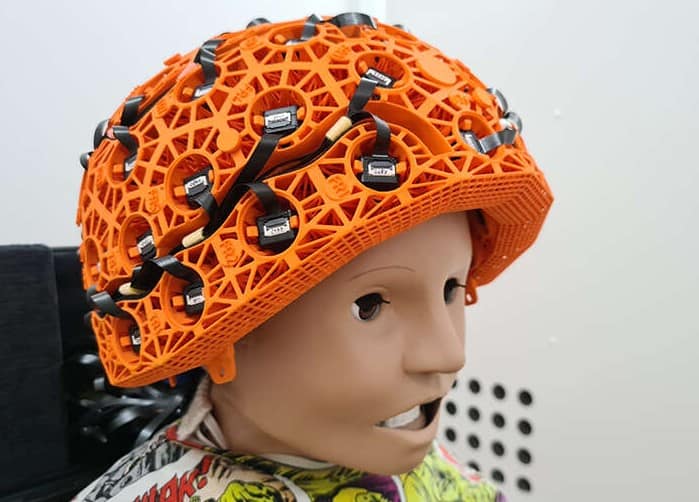

Global Workspace Theory (GWT) can be compared to a theater of mind, in which conscious contents resemble a bright spot on the stage of immediate memory, selected by a spotlight of attention under executive guidance. Only the bright spot is conscious; the rest of the theater is dark and unconscious. GWT has been implemented in a number of explicit and testable global workspace models (GWM’s). These specific GW models suggest that conscious experiences recruit widely distributed brain functions that are mostly unconscious (unreportable). A large body of new findings support that view. For example, brain experiments show that while unconscious visual stimuli evoke high activity in visual cortex, identical conscious stimuli reveal an additional spread of high brain activity to frontal and parietal lobes (Dehaene, 2001). Similar results have been found for hearing, touch, pain, and sensorimotor skills (Baars, 2002). The conscious waking state supports such fast, flexible, and widespread brain interactions, while unconscious states do not (Baars et al, 2004). These findings illustrate the ability of the GW framework to suggest novel and falsifiable hypotheses.
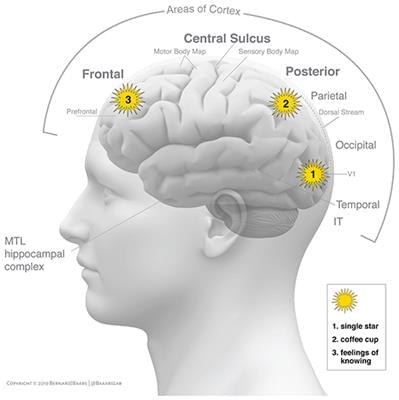
In this work, we provide a brief overview of Global Workspace Theory (GWT), along with recent developments and clarifications of modern neuroscientific evidence. GWT started in the 1980s as a purely psychological theory of conscious cognition, and has become a prominent approach in scientific studies of consciousness (Mashour et al., 2020). Based on today’s far more detailed understanding of the brain, GWT has adapted to new waves of evidence. The brain-based version of GWT is called Global Workspace Dynamics (GWD) (Baars et al., 2013; Baars and Geld, 2019) precisely because the cortex is viewed as a “unified oscillatory machine” (Steriade, 1999). GWT therefore joins other theories in viewing consciousness as the product of highly integrated and widespread cortico-thalamic (C-T) activity, following a long trail of evidence (Dehaene et al., 1998).
Here we aim to clarify some empirical questions that have been raised, and review evidence that the prefrontal and posterior regions support dynamic global workspace functions, in agreement with several other authors. Static, gross anatomical divisions are superseded by the dynamical connectome of cortex.
We aim to correct the following misunderstandings. In a recent paper, Raccah et al. (2021) claimed that the prefrontal cortex (PfC) is not causally involved in enabling consciousness, based on a review of intracranial electrical stimulation (iES) experiments. We will show that Raccah et al.’s claim that the prefrontal cortex (PfC) does not support consciousness is incorrect.
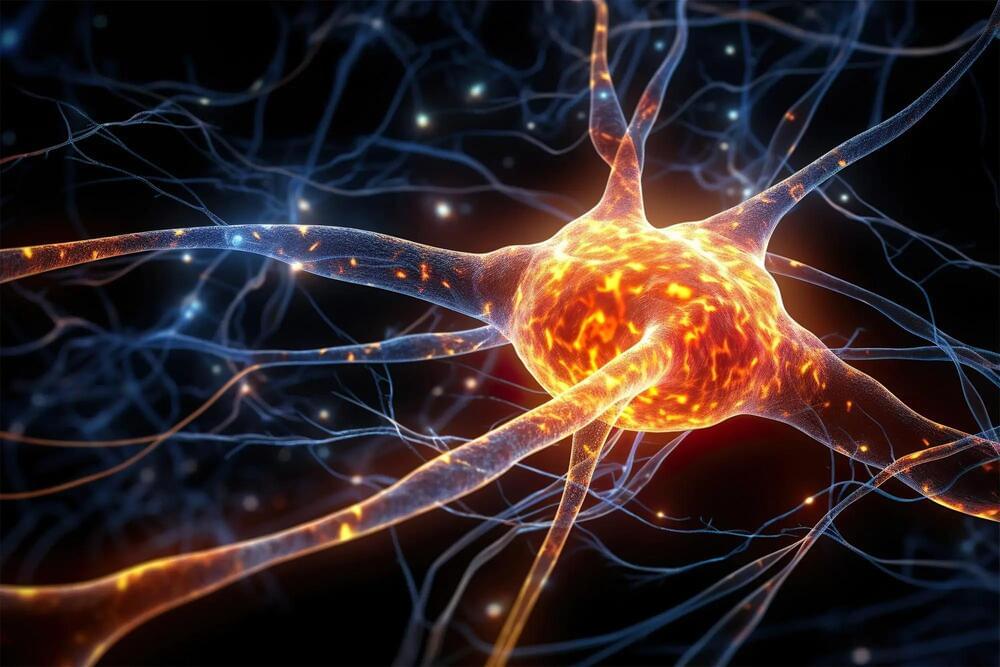
A group of nerve cells in the brain displays a remarkable ability to halt all forms of movement, as revealed by a recent study conducted on mice. This finding contributes significantly to our understanding of how the nervous system exercises control over our movements.
When a hunting dog detects the scents of a deer, it sometimes completely freezes. This phenomenon can also be observed in humans who must focus intently on a complex task.
Now, a recent discovery contributes to our understanding of what happens in the brain when we abruptly stop moving.

If two statisticians were to lose each other in an infinite forest, the first thing they would do is get drunk. That way, they would walk more or less randomly, which would give them the best chance of finding each other. However, the statisticians should stay sober if they want to pick mushrooms. Stumbling around drunk and without purpose would reduce the area of exploration, and make it more likely that the seekers would return to the same spot, where the mushrooms are already gone.
Such considerations belong to the statistical theory of “random walk” or “drunkard’s walk,” in which the future depends only on the present and not the past. Today, random walk is used to model share prices, molecular diffusion, neural activity, and population dynamics, among other processes. It is also thought to describe how “genetic drift” can result in a particular gene—say, for blue eye color—becoming prevalent in a population. Ironically, this theory, which ignores the past, has a rather rich history of its own. It is one of the many intellectual innovations dreamed up by Andrei Kolmogorov, a mathematician of startling breadth and ability who revolutionized the role of the unlikely in mathematics, while carefully negotiating the shifting probabilities of political and academic life in Soviet Russia.
A model of human cortical development could be used to instruct novel computational learning approaches. Alysson Muotri, Phd, Sujeeth Bharadwaj, PhD, Weiwei Yang, and Gabrial Silva, MSc, PhD, discuss the promise, the problems, and the potential when biology and artificial intelligence meet. Recorded on 10/14/2021. [3/2022] [Show ID: 37556]
00:00 Start.
00:17 Introduction — Alysson Muotri, PhD, UC San Diego.
11:51 An Information Theoretic Approach to Learning — Sujeeth Bharadwaj, PhD, Microsoft.
30:44 An Alternate Approach to Collectively Solving Intelligence: Machine Learning to Artificial Intelligence — Weiwei Yang, Microsoft.
47:54 Organoids May Have Just the Right Amount of Complexity to Make Sense of the Brain — Gabriel Silva, MSc, PhD, UC San Diego.
Please Note: Knowledge about health and medicine is constantly evolving. This information may become out of date.
More from: Stem Cell Channel.
(https://www.uctv.tv/stem-cell)
Explore More Health & Medicine on UCTV
(https://www.uctv.tv/health)
UCTV features the latest in health and medicine from University of California medical schools. Find the information you need on cancer, transplantation, obesity, disease and much more.
Explore More Science & Technology on UCTV
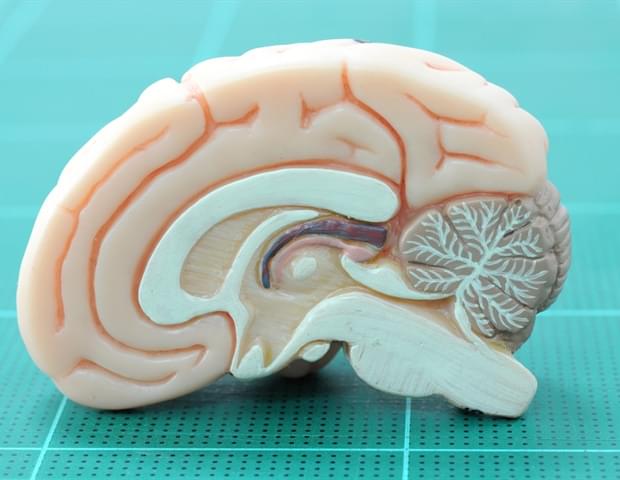
When a fragrance wafted through the bedrooms of older adults for two hours every night for six months, memories skyrocketed. Participants in this study by University of California, Irvine neuroscientists reaped a 226% increase in cognitive capacity compared to the control group. The researchers say the finding transforms the long-known tie between smell and memory into an easy, non-invasive technique for strengthening memory and potentially deterring dementia.
The team’s study appears in Frontiers in Neuroscience. (Link to the open access study: https://www.frontiersin.org/articles/10.3389/fnins.2023.1200448/full).
The project was conducted through the UCI Center for the Neurobiology of Learning & Memory. It involved men and women aged 60 to 85 without memory impairment. All were given a diffuser and seven cartridges, each containing a single and different natural oil. People in the enriched group received full-strength cartridges. Control group participants were given the oils in tiny amounts. Participants put a different cartridge into their diffuser each evening prior to going to bed, and it activated for two hours as they slept.
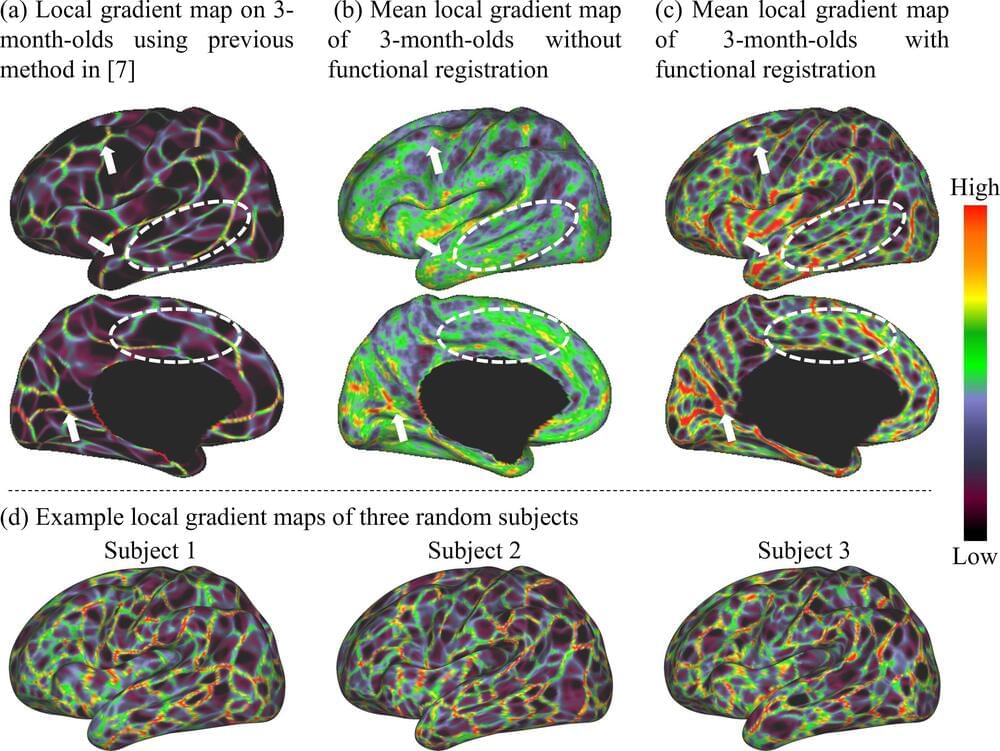
Scientists have constructed a comprehensive set of functional maps of infant brain networks, providing unprecedented details on brain development from birth to two years old.
The infant brain cortex parcellation maps, published today in eLife, have already provided novel insights into when different brain functions develop during infancy and provide valuable, publicly available references for early brain developmental studies.
Cortical parcellation is a means of studying brain function by dividing up cortical gray matter in different locations into “parcels.” Scans from functional magnetic resonance imaging (fMRI) are taken when the brain is in an inactive “resting” state, alongside measurements of brain connectivity, to study brain function within each parcel.
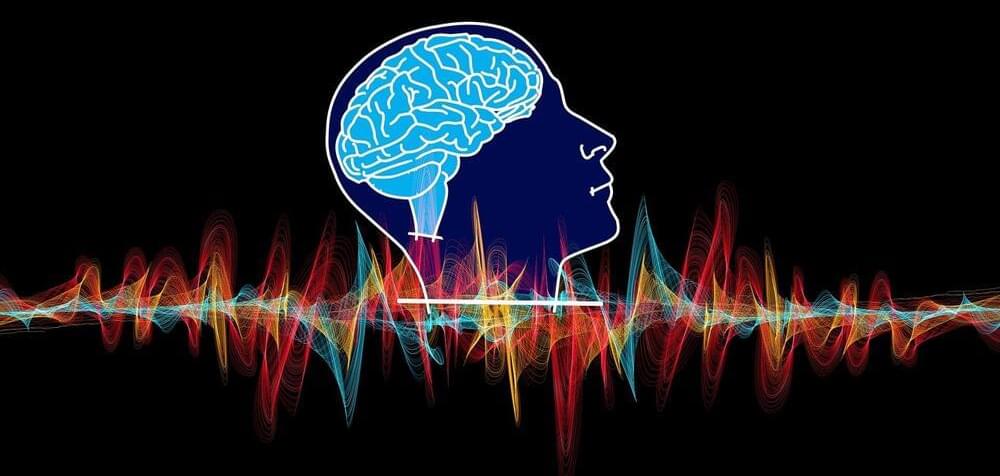
Neurons produce rhythmic patterns of electrical activity in the brain. One of the unsettled questions in the field of neuroscience is what primarily drives these rhythmic signals, called oscillations. University of Arizona researchers have found that simply remembering events can trigger them, even more so than when people are experiencing the actual event.
The researchers, whose findings are published in the journal Neuron, specifically focused on what are known as theta oscillations, which emerge in the brain’s hippocampus region during activities like exploration, navigation and sleep. The hippocampus plays a crucial role in the brain’s ability to remember the past.
Prior to this study, it was believed that the external environment played a more important role in driving theta oscillations, said Arne Ekstrom, professor of cognition and neural systems in the UArizona Department of Psychology and senior author of the study. But Ekstrom and his collaborators found that memory generated in the brain is the main driver of theta activity.
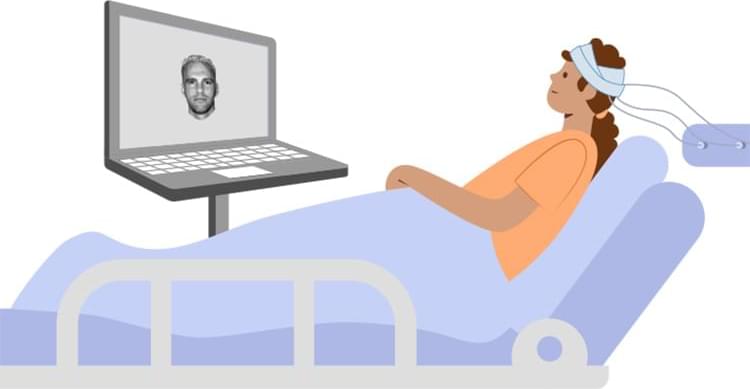
Researchers from Hebrew University of Jerusalem and UC Berkeley recorded electrical activity in the brains of epilepsy patients while showing them various images in an attempt to find out where persistent images are stored in the brain and how we consciously access those images. (Image credit: Hadar Vishne, Royal College of Art)
More than a quarter of all stroke victims develop a bizarre disorder — they lose conscious awareness of half of all that their eyes perceive.
After a stroke in the brain’s right half, for example, a person might eat only what’s on the right side of the plate because they’re unaware of the other half. The person may see only the right half of a photo and ignore a person on their left side.